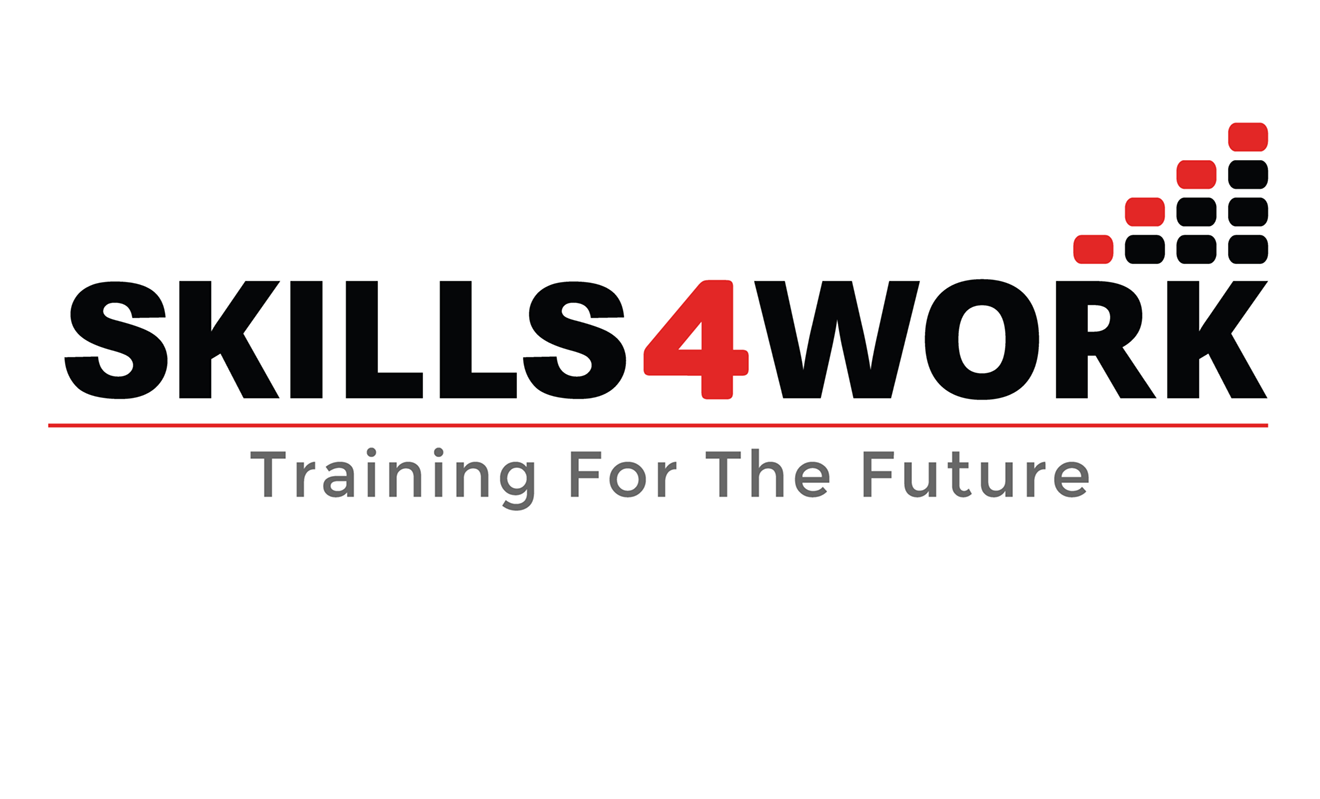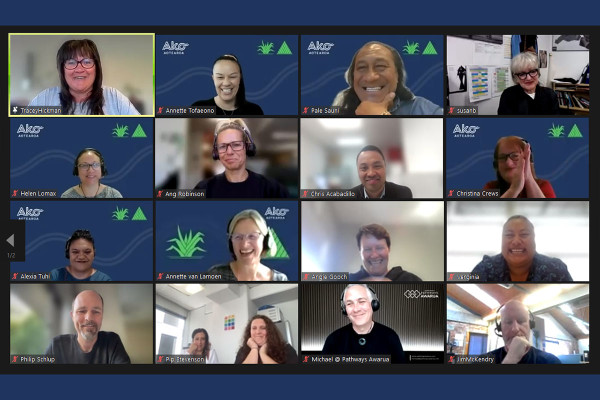Tapatoru and DFQM success story
Setting a powerful example: How Skills4Work gained Ako Aotearoa accreditations for prioritising inclusive learning environments
In late 2023, Skills4Work became the first tertiary education organisation to achieve the Dyslexia-Friendly Quality Mark (DFQM) and have their first cohort of staff achieve the Tapatoru Ako Professional Practice Award.
We spoke to two representatives from this organisation about their experience with the DFQM and Tapatoru; they believed that completing each initiative could help enhance their visibility as an organisation who promotes inclusivity and support among all learners, apprentices, and staff.
The DFQM recognises organisations that take a strategic approach to creating an inclusive environment for dyslexic learners, trainees, or clients. It is designed to promote appropriate support measures and practical guidance within a tertiary education organisation.
Tapatoru is a values-based, whole-organisation professional development initiative focused on fostering inclusive and effective learning environments for all learners. It elevates the practice of tertiary educators and trainers through regular online facilitated sessions on topics such as Māori values, Pacific cultural centredness, neurodiversity, literacy, numeracy, and more.
As of 2024, 12 organisational groups have been awarded the DFQM, and 28 kaimahi from three organisations have completed the Tapatoru programme. But of those organisations, one organisation has been successful in both! This is a wonderful development that Ako Aotearoa is extremely pleased to see taking place.
Skills4Work: A TEO operating in a niche space
Skills4Work is a training provider focused on skill development across two specific industries: Butchery and Bakery. They are the only NZQA-accredited provider of a butchery qualification in Aotearoa New Zealand, and one of a select few who deliver the CRAFT Baking qualification. The Skills4Work team is passionate about providing innovative, customised, and specialised training to produce highly employable graduates, and offer a wide range of industry courses, workplace programmes, apprenticeships, and resources for learners.
They enrolled in the DFQM and Tapatoru programmes in 2022, when the senior management team saw that these initiatives could benefit their culturally diverse learners and apprentices, particularly those with neurodiverse learning requirements.
“We made the conscious decision to engage our team in both [DFQM and Tapatoru] to ensure that our learner/apprentice-facing team is well-versed and skilled in cultural competency and has robust strategies to respond to the neurodiversity of our learners and apprentices,” says Monique Le Marque, Chief Operating Officer of Skills4Work.
Neurodiversity advocate spearheads Skills4Work’s DFQM accreditation
Desiree Gelbart was the Quality Manager for Skills4Work and led Skills4Work’s DFQM accreditation process, with support from the leadership team. A passionate advocate for the support of neurodivergent learners, she heard about the DFQM through a webinar hosted by Ako Aotearoa’s Neurodiversity Community of Practice and believed it would enhance their educational practice.
When she approached the leadership team about signing up for the DFQM, she was pleasantly surprised to find that steps were already in motion to engage in the programme, along with Tapatoru.
During the accreditation process, which involved examining Skills4Work policies and procedures and incorporating dyslexia-friendly strategies, she was pleased to have facilitators Annette Tofaeono and Chris Cole as ‘sounding boards’; “I didn't need to nag them too often, but towards the end [their help] became really valuable when I was submitting … Just the paperwork that they sent me made it easier for me to know what I had to do.”
“I'm up there for neurodiversity, let me tell you. And you have to be, because who else is going to be? They just need a little bit of aroha. But we're changing things” – Desiree Gelbart
As someone with a background in educational psychology, Desiree had been disheartened by the consistent lack of empathy shown towards neurodivergent learners. In her current role training assessors, Desiree makes sure to remind her trainees of the importance of being supportive and respectful towards all learners. “You meet these people for a day and you're assessing them. You don't know what differences they bring to the space.”
While she took care of the DFQM work, she had started training Skills4Work kaimahi on dyslexia, dyspraxia, and dyscalculia, and had colleagues coming to her for advice on how to support their neurodivergent learners. The DFQM enhanced her existing knowledge and helped her gain confidence in recommending resources, guides, and appropriate actions to her colleagues.
Desiree is heartened by the “heightened awareness” of her colleagues and the efforts they are making to provide extra support for their learners.
Skills4Work finds flexibility and enhanced capability in Tapatoru programme
Desiree was also one of the educators who took part in the Tapatoru programme, along with four of her Skills4Work colleagues. She appreciated the range of content and the ability to have sessions online for the kaimahi spread out over the country; “It meant that for those that attended really frequently, Zoom made it possible… It makes the whole thing a lot easier for everyone, for sure.”
At the time of signing up, she saw the DFQM and Tapatoru as initiatives with completely different subject matters. But as the sessions progressed, the Tapatoru facilitators had begun to incorporate sessions about dyslexia, dyspraxia, dyscalculia, and other neurodiverse differences. One of the greatest impacts of Tapatoru for Desiree was that participants could build on their existing knowledge and “get another view” of each topic.
She also found that those sessions reaffirmed her work towards the DFQM and would often “trigger something” that would need to be incorporated into her portfolio, such as an amended policy or process.
“It definitely added value having that stuff covered in the Tapatoru… That was the stuff I'd been imparting to staff. This is affirming it.”
DFQM and Tapatoru: “Ensuring equity for staff and ākonga”
In their original goal of upskilling their learner/apprentice-facing team, Skills4Work found that each programme helped them improve different areas of their operations. While the Tapatoru provided interactive professional learning sessions for kaimahi to elevate their own knowledge and capability in a range of areas, the DFQM supported Skills4Work’s behind-the-scenes operations, such as policy, induction, resource development and the ongoing upskilling of their team.
“It was an honour and a privilege to work with Skills4Work across these two critical kaupapa,” says Annette Tofaeono, who facilitates both the DFQM and Tapatoru. “Completing both of these programmes and achieving them at such a high standard is a huge undertaking. It also helped the Ako team recognise the synergies and connections between the DFQM and Tapatoru programmes and how they can complement each other.”
According to Monique, Tapatoru has “supported our trainers and elevated their capability toward delivering their professional knowledge and practice in a more holistic and culturally competent way.” As for the DFQM, she says it “supported Skills4Work to ensure development of resources and our general practice so that we are better equipped and responsive to our learners who present with neurodiverse learning needs.”
“It was gratifying for me to see how our relationships and conversations grew deeper throughout the [Tapatoru] programme. Skills4Work ākonga are fortunate indeed to have wonderful and caring tutors who are so evidently committed to their holistic well-being,” says Tapatoru facilitator Graeme Smith.
Skills4Work believes that their DFQM and Tapatoru achievements will enhance the visibility of them as an organisation who welcomes people with learning differences. They hope that potential learners will feel more comfortable talking about any challenges and asking for the support they need to succeed.
“You have to change the way you train, and it benefits everyone… it enriches our programmes… and [learners] just need that safe space to open up and speak. And that's where our trainers are really good – they've got that whanaungatanga.” The ability to create that safe space is especially important in apprenticeships, where Skills4Work trainers tend to build relationships with learners over 3-4 years.
Skills4Work also believes that present and future trainers will also feel accommodated by these improvements. “It's not just those ākonga impacted, it's the whole organisation… it ensures equity for both staff and the ākonga,” says Desiree.
Ako Aotearoa commends the Skills4Work team for this achievement, and for putting in the work to ensure a supportive and inclusive learning environment for all learners.
“This significant achievement demonstrates their ongoing commitment to their kaimahi and ākonga. A highlight for me was watching the development and progress and getting to know the team and the wonderful work they do,” says Annette.
We look forward to more organisations following in the footsteps of Skills4Work, who have truly set a powerful example.

